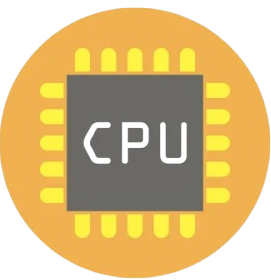A CPU’s temperature dramatically affects your computer’s performance and longevity. Many people wonder, “Is 70°C too hot for a CPU?”
70°C is safe for most CPUs under full load and within normal operating ranges. Modern processors are designed to handle temperatures up to 80°C, ensuring stable performance during heavy tasks like gaming or rendering.
In this guide, we’ll break down everything you need to know about CPU temperatures simply and clearly, helping you keep your system running smoothly and efficiently.
What Is the Normal Operating Range for a CPU?
Most CPUs operate safely between 30°C and 50°C when idle and 40°C to 70°C under heavy workloads like gaming or rendering. This range ensures your processor performs optimally without risking damage.
Modern CPUs are designed to handle higher temperatures, but staying within this range avoids thermal throttling and ensures a longer lifespan. Always check your CPU’s specs for exact details and use monitoring tools to stay informed.
Is 70°C Safe During Gaming or Heavy Workloads?
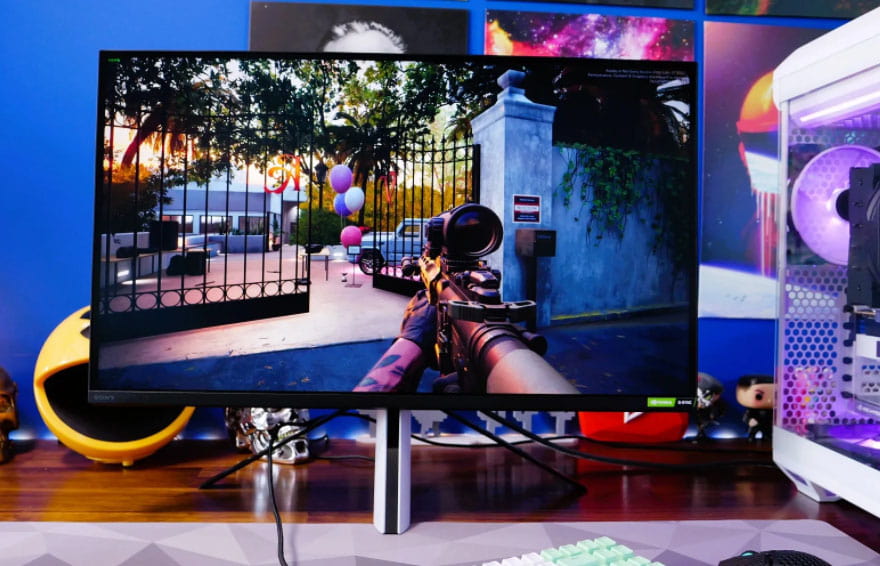
Yes, 70°C is safe for most CPUs while gaming or multitasking. High-performance processors often reach this temperature during intense tasks, which is normal.
However, if your CPU regularly exceeds 85°C, it may throttle performance or wear out faster. Keeping your cooling system clean and ensuring proper airflow can help maintain safe temperatures during prolonged use.
Why Does CPU Temperature Increase?
Several factors contribute to rising CPU temperatures:
- Overclocking: Running the CPU at speeds higher than factory settings generates extra heat.
- Ambient Temperature: Hot room conditions can make it difficult for cooling systems to dissipate heat effectively.
- Dust Accumulation: Dust in fans and vents restricts airflow, leading to higher temperatures.
- Poor Cooling Solutions: Inadequate or malfunctioning coolers fail to keep temperatures in check.
Potential Risks of High Temperatures
- Thermal Throttling: The CPU slows down performance to prevent overheating, reducing system speed during demanding tasks.
- Hardware Damage: Prolonged high temperatures can degrade the CPU, leading to permanent damage.
- System Instability: Overheating can cause random crashes, freezes, or reboots.
- Reduced Lifespan: Constant exposure to high heat shortens the overall lifespan of the CPU.
- Increased Power Usage: The system works harder to cool down, consuming more power and stressing other components.
How to Monitor CPU Temperatures
You can monitor your CPU temperature using tools like HWMonitor, Core Temp, or your motherboard’s BIOS. These programs show real-time temperature data and help you ensure your CPU stays in the safe range.
For gaming or heavy workloads, it’s good to check temperatures regularly. If your CPU runs too hot, consider cleaning your PC or upgrading your cooling system.
Also Read: CPU Core Ratio Sync All Cores Or Auto – What’s Best for You?
Optimizing Cooling Solutions
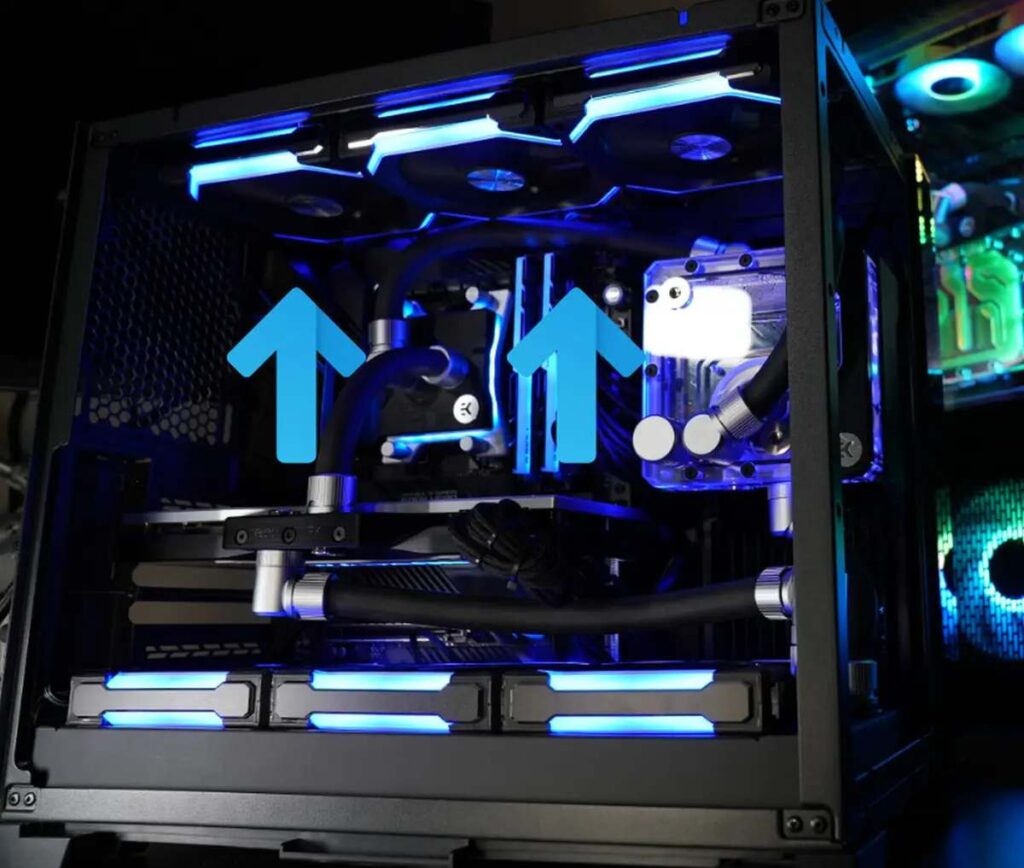
Cooling is critical to keeping your CPU safe. Use high-quality air or liquid coolers to handle heat effectively. Ensure your case has proper airflow by strategically placing intake and exhaust fans.
Also, don’t forget to reapply thermal paste every couple of years—it improves heat transfer between the CPU and cooler. Simple upgrades like these can lower your CPU temperature significantly.
Preventive Maintenance
Prevent overheating by regularly cleaning your PC to remove dust from fans and vents. Keep the area around your computer free of debris for better airflow.
Check fans and cooling systems to ensure they work correctly. Position your PC in a ventilated space and avoid blocking air vents. Regular care helps your CPU run cooler and last longer.
Role of Ambient Temperature
The temperature of your room can affect your CPU. If your room is hot, your CPU may struggle to cool down. Use an air conditioner or fan to keep the room cool, especially during gaming or heavy workloads.
Place your PC in a ventilated area, away from direct sunlight or heat sources, to maintain safe operating temperatures.
What Is A Good CPU Temp?
A good CPU temperature is between 30°C and 50°C when idle and 40°C to 70°C during heavy use. Staying within this range ensures optimal performance and longevity. If temperatures exceed 85°C, it’s time to check your cooling system.
Is 70c too hot for GPU?
No, 70°C is not too hot for a GPU. Most modern GPUs are designed to handle temperatures up to 85°C–90°C under load. However, keeping it under 80°C is better for long-term performance and hardware health.
Also Read: Is 50c Good For CPU – Everything You Need To Know In 2024!
Is 70c too hot for CPU Gaming
No, 70°C is typical for gaming on most CPUs. High workloads generate heat, and 70°C is within the safe range. Ensure your cooling system works well and clean out dust to maintain stable temperatures during gaming sessions.
Is 70c safe for CPU while Gaming?
Yes, 70°C is safe for a CPU while gaming. It’s common for CPUs to reach this temperature during demanding tasks. However, consistent temperatures above 85°C could lead to performance throttling or long-term damage.
Is 80C too hot for CPU
80°C is not immediately dangerous but higher for a CPU. Prolonged exposure to this temperature might reduce its lifespan or performance. During heavy use, ensure proper airflow and cooling to bring it below 75°C.
Is 70 degrees hot for a CPU idle
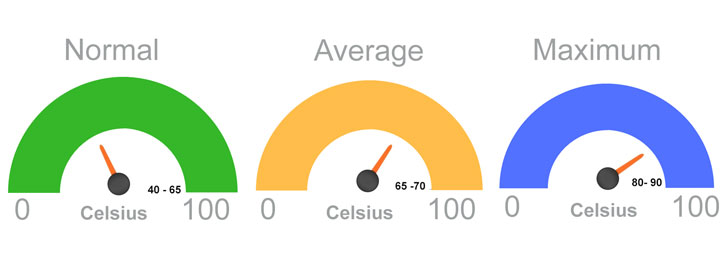
Yes, 70°C is too high for idle. Idle temperatures should be between 30°C and 50°C. If your CPU idles at 70°C, check your cooling system, clean dust, or reapply thermal paste to fix potential issues.
Is 71c too hot for CPU
No, 71°C is still safe, especially under load. However, it’s near the upper end of the ideal range. Regular monitoring and proper cooling are necessary to prevent further increases during heavy tasks.
Is 70C a safe temperature for running AAA games?
Yes, 70°C is safe for running AAA games. Such titles heavily use CPU resources, so this temperature is average. Maintain good airflow and cooling to keep it from going above 80°C during extended gaming sessions.
Is a CPU temp of 70°-80° while gaming safe?
Yes, a CPU temp of 70°–80°C while gaming is generally safe. Most CPUs are designed to handle this range under heavy load. However, staying closer to 70°C is ideal for better longevity.
CPU sitting at 70-80°c at low usage, should I be worried?
Yes, a CPU temperature of 70–80°C at low usage is concerning. Idle temperatures should be much lower, typically between 30°C and 50°C. Check for dust buildup, poor airflow, or a failing cooler. Reapplying thermal paste might also help.
Is 70 Celsius (158 Fahrenheit) good for a CPU?
Yes, 70°C is good for a CPU during heavy workloads. It’s within the safe range for modern processors. However, you should inspect your cooling system for issues if this temperature occurs during light tasks or idling.
Is 70 c too high for gaming?
No, 70°C is not too high for gaming. CPUs often reach this temperature during demanding games, and it’s considered safe. Ensure proper cooling to avoid exceeding 85°C during prolonged gaming sessions.
Is 70c a good gaming temp
Yes, 70°C is a good gaming temperature. This is well within the safe operating range for most CPUs. If temperatures stay below 80°C, your CPU should perform efficiently without risking damage.
Must Read: CPU Privileged Time Is Too High Zabbix: How Zabbix Can Help!
Is a 60-70 CPU temperature dangerous when gaming?
No, 60–70°C while gaming is not dangerous. This range is expected to be under load and safe for most CPUs. Regular cleaning and proper cooling can help maintain these temperatures for optimal performance.
Is 67-70c a good GPU temperature on 100% usage?
Yes, 67–70°C is a good GPU temperature under full load. Most GPUs are designed to handle up to 85°C–90°C without issues. Keeping it under 80°C ensures better long-term performance and reliability. Check your cooling setup for additional safety.
Is 70C CPU temperature when idle normal?
No, 70°C at idle is not normal. Idle temperatures should range between 30°C and 50°C. High idle temperatures could mean poor cooling, dust buildup, or excessive background tasks. Cleaning your PC and checking the cooling system can help fix the issue.
CPU Over 70c do you think this is normal.
Yes, over 70°C is normal under heavy loads like gaming or rendering. However, it shouldn’t exceed 85°C for extended periods. If your CPU exceeds 70°C during light tasks or idle, check for dust, airflow issues, or failing fans.
My CPU Runs Hot in this Game
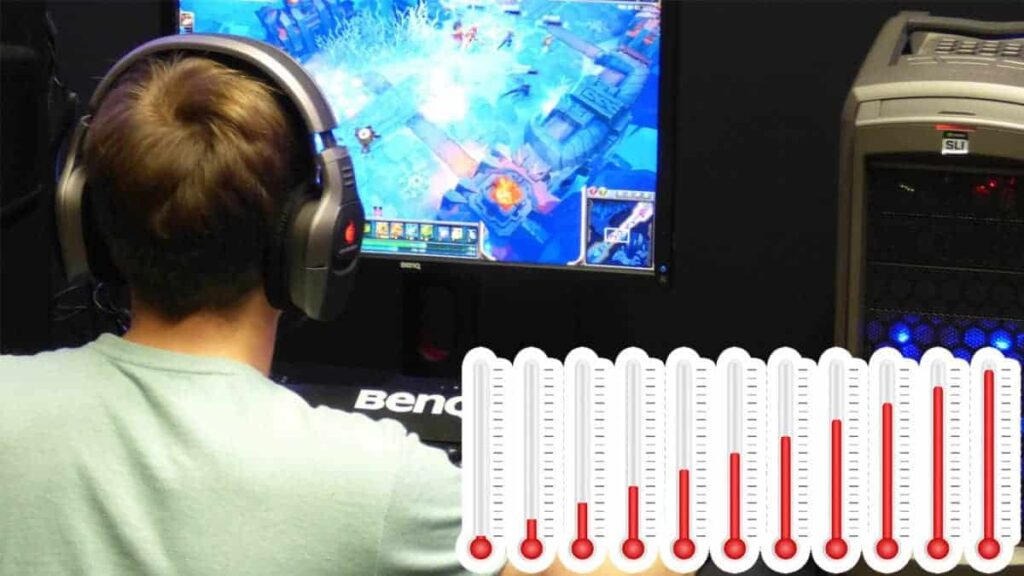
If your CPU runs hot during gaming, check your cooling system. Games heavily tax the CPU, causing temperatures to rise, often around 70°C–80°C. Ensure your case has good airflow and that fans or liquid coolers work efficiently.
Must Read: Print Filter Pipeline Host High CPU – Quick Guide In 2024!
Does an average Temperature of 70 degrees affect CPU lifetime?
No, an average temperature of 70°C is unlikely to affect CPU lifespan if it’s under load. Modern CPUs can handle these temperatures. However, consistently higher temps (above 85°C) can reduce performance and longevity over time.
Can your CPU get damaged if it’s routinely at 70-80 degrees Celsius?
No, 70–80°C won’t damage your CPU during regular use. This range is safe for most CPUs under load. However, prolonged exposure to temperatures above 85°C may degrade the CPU over time. Proper cooling is critical to staying safe.
FAQs
1. Is 75c too hot for a CPU?
No, 75°C is not too hot for a CPU under load. However, staying below 80°C ensures better performance and hardware longevity.
2. What degrees is too hot for a CPU?
Above 85°C is too hot for most CPUs. If maintained for long periods, it risks thermal throttling and potential hardware damage.
3. Is 80 degrees ok for CPU?
Yes, 80°C is okay under load, but on the higher side. Ensure proper cooling to avoid further increases.
4. Is 90C safe for CPU?
No, 90°C is not safe. It can cause thermal throttling and long-term damage. Immediate cooling measures are necessary.
5. Does the i7 run hotter than the i5?
Yes, i7 processors often run hotter due to higher performance and power consumption, especially in demanding tasks.
6. Does the i7 13700K get hot?
The i7-13700K can run hot under load due to its high performance. Good cooling solutions are essential.
7. My CPU is constantly at high 70C during gaming, is it too hot?
No, 70°C during gaming is safe. It’s a normal range for most CPUs under load.
8. Would you guys be ok with 70C idle temp on NVME storage.
No, 70°C at idle is too hot for NVMe. It should ideally stay below 50°C to avoid performance issues.
9. Why does my CPU temperature go up to 70C when I open a game and go down after a second?
The temperature spike is normal. The CPU works harder to load the game and then cools as the load stabilizes.
10. Whenever I play games, my GPU temperature reaches around 70-75 sometimes even 78ºC. Is this safe for my GPU?
Yes, 70–75°C is safe for a GPU during gaming. Modern GPUs are designed to handle up to 85°C.
Conclusion
In conclusion, a CPU temperature of 70°C is generally safe for most modern processors, especially during gaming or heavy tasks. Keeping temperatures below 80°C ensures optimal performance and longevity. Regular maintenance, such as cleaning dust and improving airflow, can help prevent overheating and maintain stability, ensuring your system runs smoothly for years.
